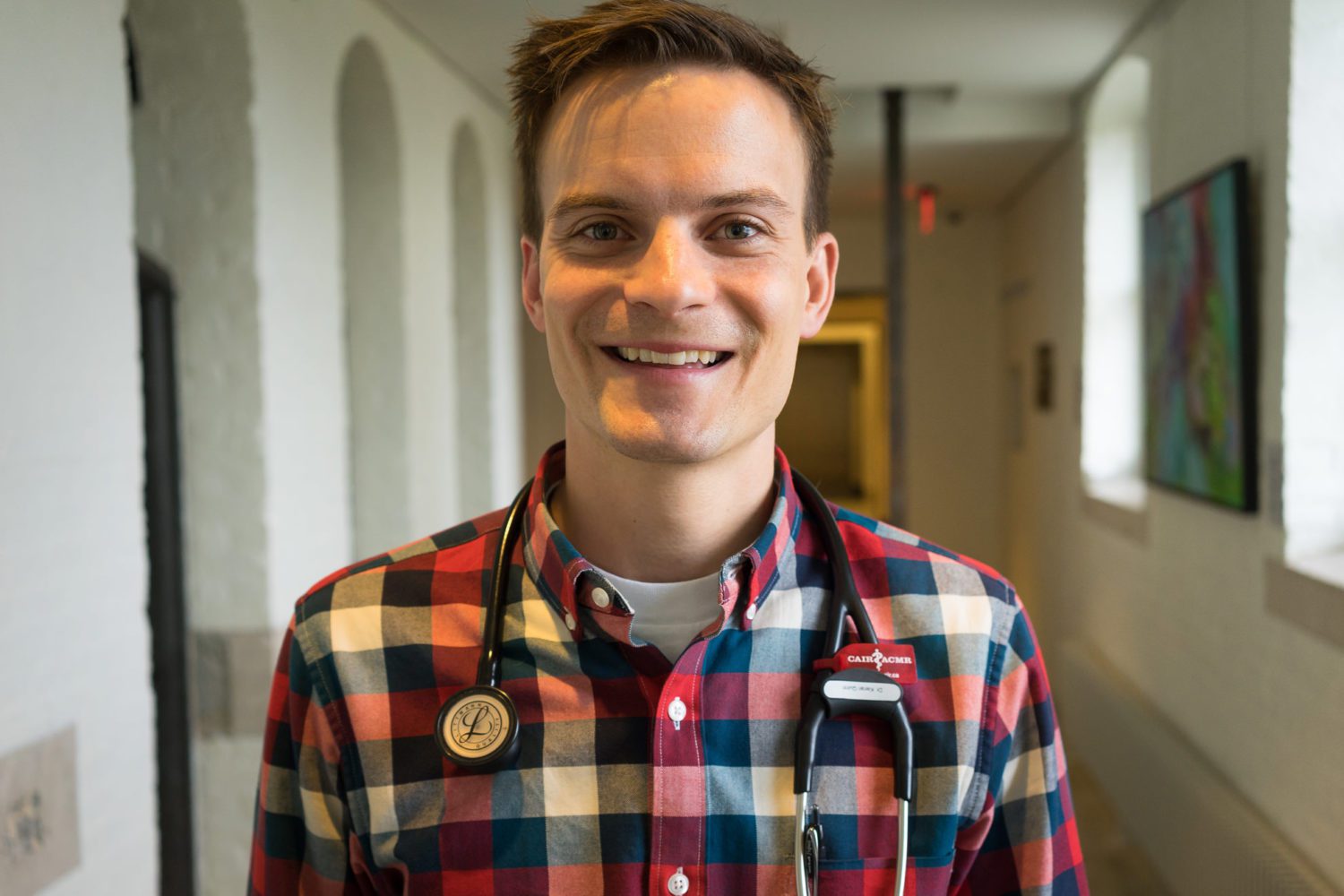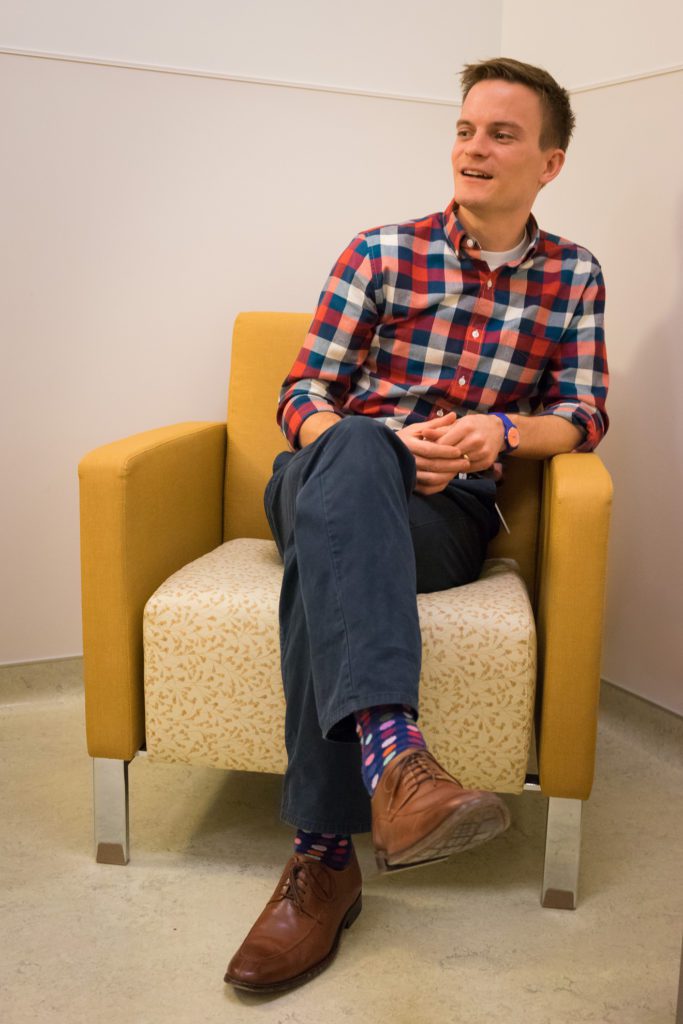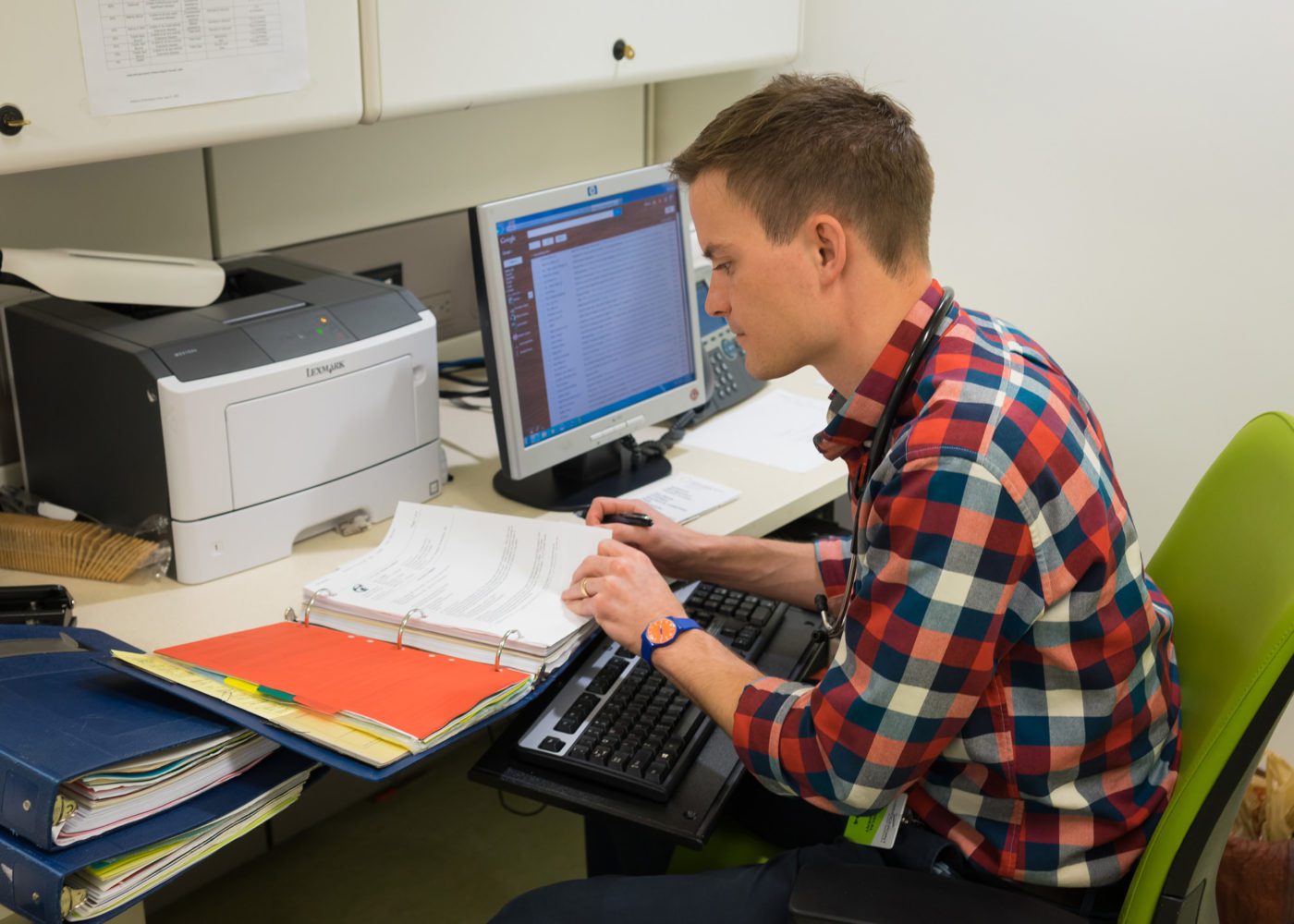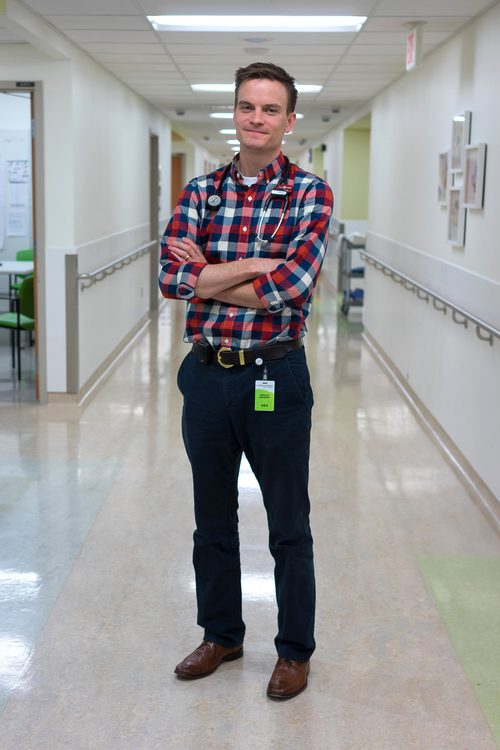Internal medicine resident Kieran shares what he learned from his most difficult case, why he wants patients to question his decisions, and the worst thing he’s eaten on call.
The most challenging case I’ve ever been involved in was in the ICU, with a younger woman who had advanced cancer that was widely spread.
“She was on a breathing machine, fed with a tube, and had multiple IVs. It was clear to her doctors that she was dying – that she would never leave our unit and would just continue to slowly deteriorate. But her husband could not accept her state of health. It was a constant battle between the health care team and him to try to provide care that was beneficial for her, but also that was not medically futile. There came a point when all of the team involved in her care were quite distraught with the things we the doctors were ordering for the patient, which were directed by her husband. And when she ultimately died, her husband was shocked – he had never been able to come to grips with the fact that she was dying the whole time. Looking back, I don’t like the fact that we were treating the woman this way, but I also don’t like that we were battling her husband. He’ll probably remember her death as a battle with the health care system to provide care. In some ways I feel like we failed him – he’s the one who is living; he’ll carry that with him the rest of his life.”
“I realized from this is that we all have our own bias about what quality of life is. It’s not worth it to argue with families about what you think acceptable quality of life is versus what they think acceptable quality of life is. Even if you think that what you are doing is of no benefit. The best thing we can focus on as physicians is making sure that they are comfortable. With all of the wires and tubes and things that we have to maintain their life – as long as they are comfortable, then that’s enough. And by supporting the husband in this case, we are doing our jobs. I may not necessarily agree with all these medical treatments I am ordering, but the patient is comfortable. And I am respecting the wishes of those who know her far better than me.’”
I want patients and families to feel comfortable challenging the recommendations that we make.
“I want them to feel comfortable questioning the things that we do. And some families are great at this, and some families question everything we do to the point where it’s hard to care for them. But the majority of families don’t want to rock the boat. They’re worried about upsetting the health care teams and they’re worried that it’s going to affect the care that they’re going to get… but sometimes I’m doing what I think is right for a patient, but it’s not what they want. Then I need them to say ‘no doctor, I think you are wrong’ or ‘why are you doing that?’ or ‘can we do something different?’ I want them to challenge me and question me. I think patient care could be really improved if there was a more open and accepting culture on both sides of the table – that challenging and questioning is a good thing for the patient.”

“What’s the worst thing you’ve ever eaten on call?”
“I have picked – oh God this is embarrassing – I have picked the cold vegetables off a patient’s discarded tray that was sitting in the hall. It was late, nothing was open and I was desperate. I made sure no one was looking, scarfed it, and ran off.”

You only get one shot at somebody’s death.
“And their family will carry that death forward for the rest of their life. So when a patient is dying I think my job as a physician is to ease that path – to help make that one moment, that one journey until that ultimate death the best that it can be.”

“What’s the worst part of your job?”
“The lack of control in my own life. I’m told it gets better after residency. But finding a work life balance is incredibly difficult when I can’t plan my life more than two weeks in advance, because I’m never sure if I’m going to be on call. Missing out on weddings, friend’s parties, family get-togethers, funerals, memorials. All these things I can never commit to because I have no idea in three weeks time what I’m going to be doing.”
“That leads to an overall sense of fatigue. Staying up all night doesn’t help that. So that the moments that I am awake at home with my two-year old son and my wife, I find it hard to have the energy to be present with them, to interact with them the way that I want to, because I’m just so tired from the previous week’s work. That it makes what little time I have away from the hospital difficult to enjoy.”



The comments section is closed.